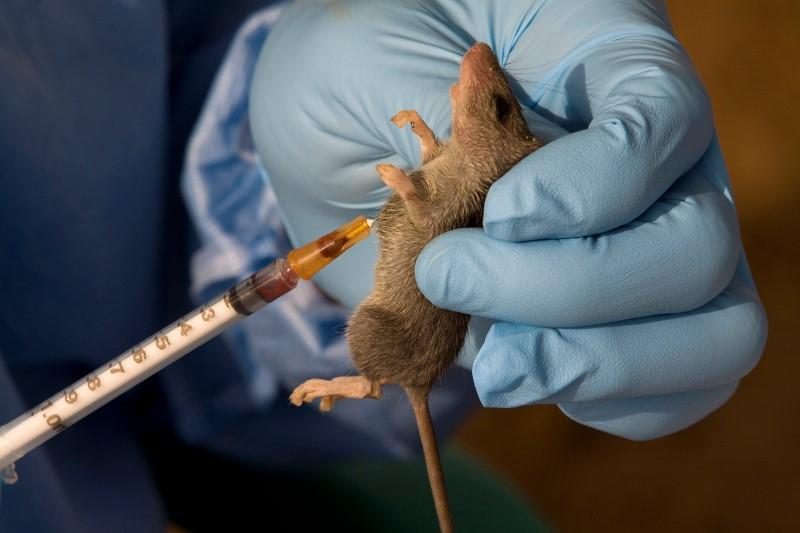
This past week brought two items of disturbing health news. The Nigeria Centre for Disease Control reported that there are now 317 confirmed cases of Lassa fever so far in 2018, surpassing the number of cases this same time last year. At present much of the outbreak is concentrated in the Edo, Ondo, and Ebonyi states but don’t be fooled into thinking it can’t spread to other parts of the country.
The second bit of news relates to Meningitis. Cases of the disease continue in several states (23 states) in Nigeria with 347 suspected cases and 15 deaths so far this year. This number is also more than the number of cases at the same time last year.
There are more outbreaks of Lassa fever and Cerebrospinal Meningitis in the dry season – between October and April than at other times of the year.

What you should know about Lassa fever
Lassa fever is an infection caused by a virus that is common in West Africa. It is similar to Ebola Virus Disease. It is a potentially fatal illness, highly contagious, and can spread rapidly.
You become infected through contact with the Multimammate Rat. The rats live in and around our homes – both rural and urban. The infected rats pass the virus in their urine and feces. Direct contact with rat excreta, touching soiled objects, eating contaminated food, and exposure to open cuts or sores, can lead to infection. Other ways you can get it include:
- Eating an infected rat
- Inhaling tiny particles in the air that are contaminated with infected excretions when sweeping and dusting
- Direct contact with infected blood/bodily secretions. Caregivers are, particularly at risk
The problem is that in the early stages, Lassa fever is often misdiagnosed as the flu, typhoid or malaria, and so many patients don’t receive appropriate medical treatment. Early signs include high fever, headache, and feeling unwell, followed by a sore throat, nausea, vomiting, abdominal pain and diarrhea in some cases. Most patients will start to feel better after 4 to 7 days, but some get worse developing swelling, bleeding, and shock, leading eventually to death within 10 – 14 days.
To prevent Lassa fever:
- Avoid contact with rats and their excreta
- Store foods in rat-proof containers and cook all foods thoroughly before eating
- Discourage rodents from entering the house by blocking all possible entry points
- Observe good personal hygiene including hand washing with soap and running water regularly
- Dispose of waste properly and clean your environment so that rats are not attracted
- Avoid all contact with fluids from an infected person
Use rat poison with caution, as it can be poisonous to children and adults as well!!

What is meningitis and how can you prevent it?
Cerebrospinal meningitis, also known as meningitis, is an inflammation of the meninges, the thin lining covering the brain and the spinal cord. The inflammation can be the result of infections due to bacteria, viruses, fungi, or from non-infectious causes. The bacteria Neisseria meningitides is responsible for the Nigeria outbreaks.
1 out of 10 people are “carriers” of the bacteria that causes meningitis. They carry it in the back of the nose or throat without any signs or symptoms of illness. In some people, the bacteria spread to the blood and goes on to infect the meninges.
The bacteria can spread:
- Through the air from coughing, sneezing or spitting
- Through close contact such as kissing
- From sharing cups, straws and eating utensils
- Due to crowded living conditions
General symptoms such as fever and vomiting occur in meningitis as they do in conditions such as malaria and typhoid fever. However, the combination of a severe headache, neck stiffness, confusion, sensitivity to light, vomiting, and fever occurs most commonly in meningitis and requires urgent medical attention. The symptoms are due to swelling and irritation of the lining of the brain and spinal cord by the infection. Other symptoms include a rash, sleepiness or difficulty staying waking, and seizures.
Meningitis is contagious and life-threatening. You can protect yourself and family by taking simple actions:
- Wash your hands – regular hand washing with soap stops the spread of germs
- Practice good hygiene – Don’t share drinks, foods, eating utensils, cups, straws or toothbrushes with others
- Practice proper cough etiquette – Cover your mouth when you cough or sneeze
- Do not spit in public
- Stay healthy – Getting enough sleep, eating a healthy diet, and exercise regularly will keep your immune system strong
- Get vaccinated – Take advantage of local Meningitis Vaccination Campaigns
If you or someone you know has any Lassa fever or Meningitis symptoms or persistent high fever that is not responding to standard treatment for malaria and typhoid fever, report immediately to the nearest health center.


Daniele
Thank you, everyone! 🙂